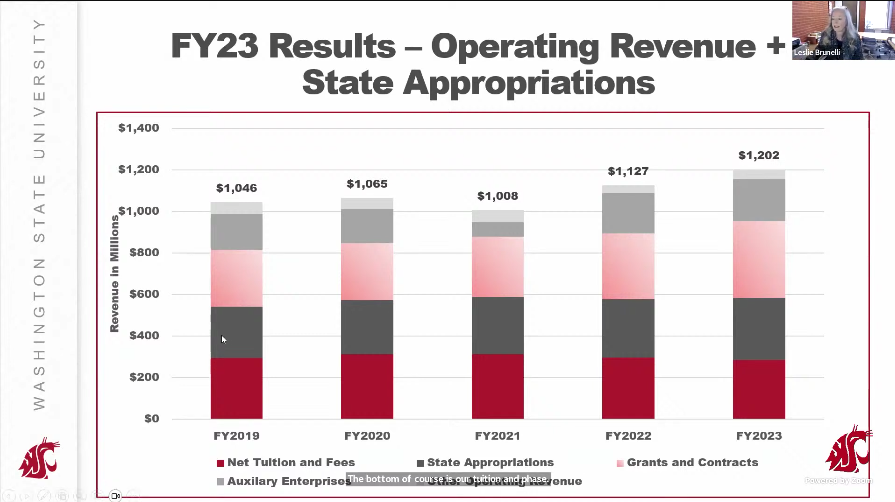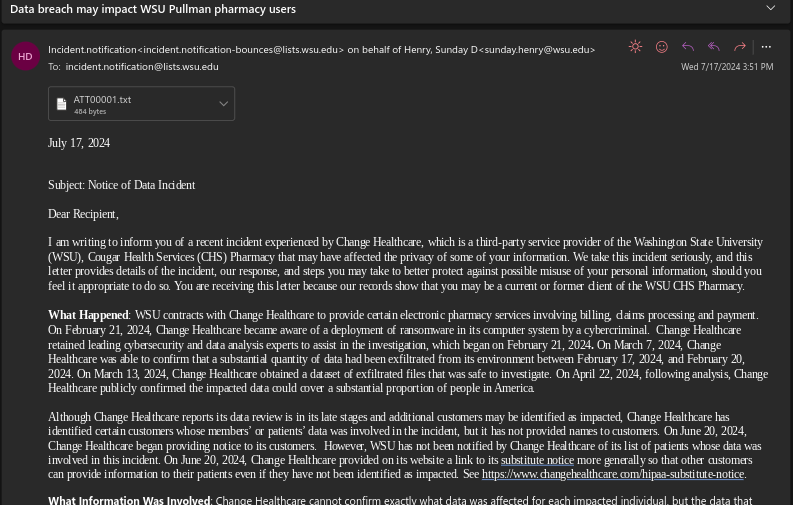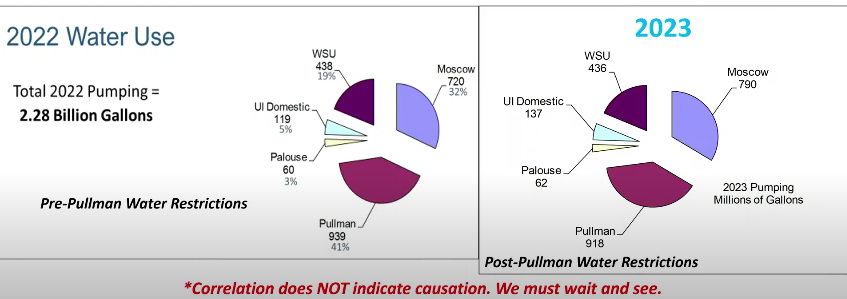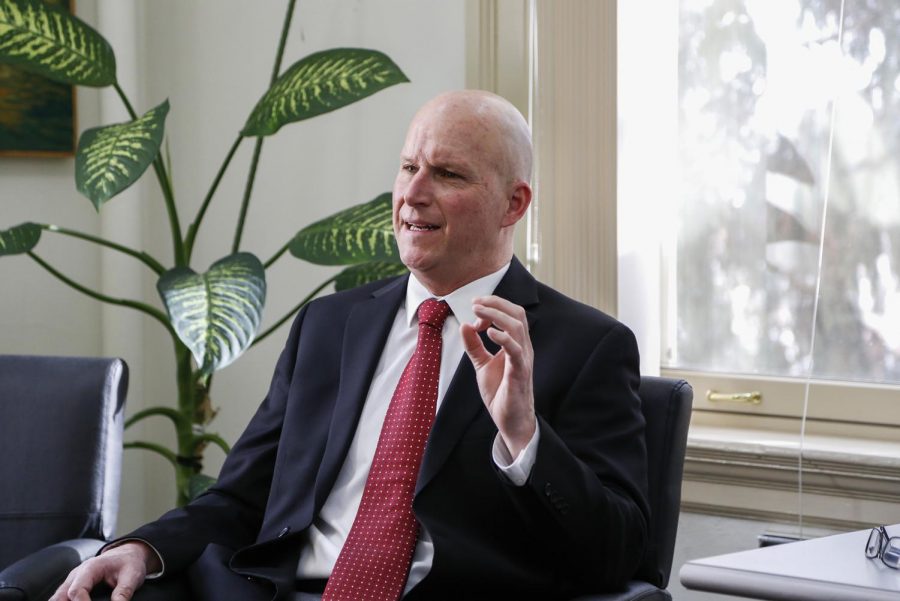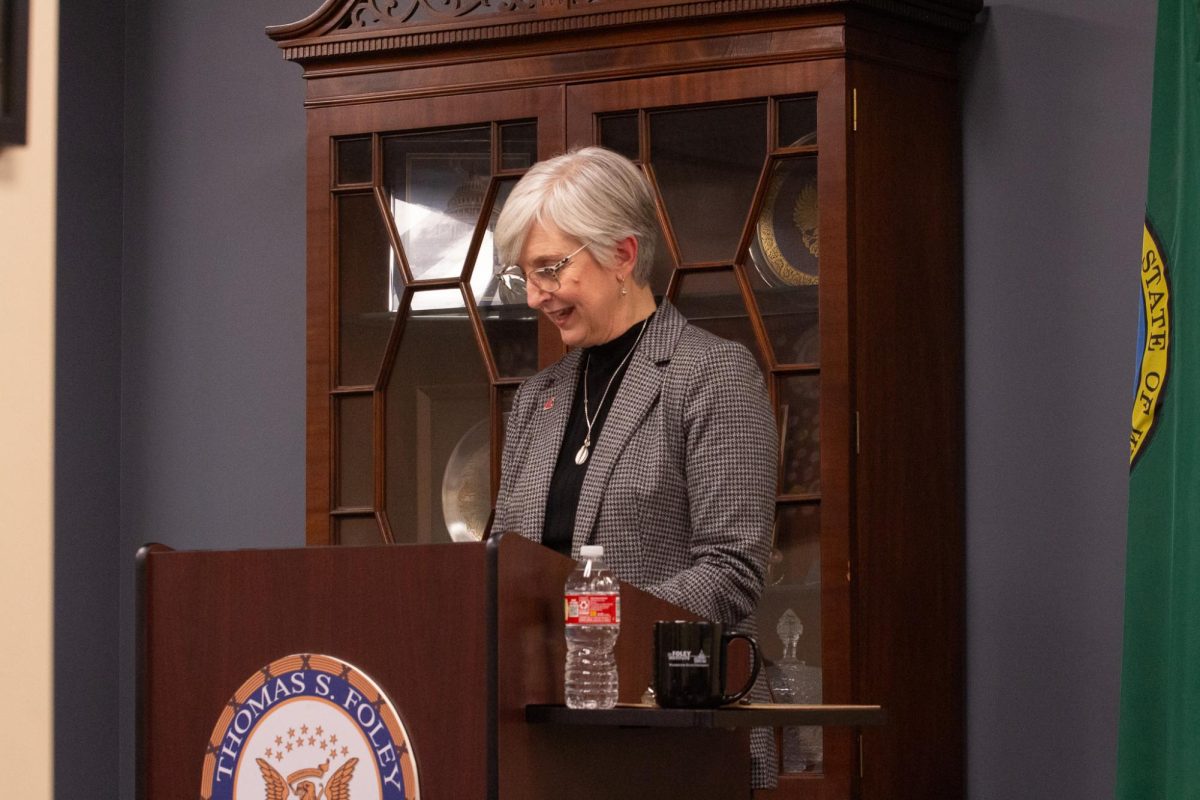Leslie Brunelli, finance and administration executive vice president, assessed the budget for Fiscal year 2023, the progress of FY24 and the budget plans for FY25 at Thursday’s faculty senate meeting.
Brunelli’s presentation highlighted the growth in grant money along with faculty awards from 2022-23. Researchers and others who were awarded the grants during COVID-19 were able to spend the money they won in 2021 and conducted more expenditures, Brunelli said.
The most significant expenditure during 2023 was salaries and benefits, she said. Last year more faculty positions were filled after several resignations from 2021. The second most significant expenditure was financial aid.
In 2023, Operating revenues increased by more than 6%, Brunelli said. State funding support remained consistent with a 7% growth.
However, operating expenses outpaced the increase in operating revenues and state appropriations. This one was one challenge of 2023, Brunelli said.
State funding is only allocated for specific purposes. A large portion of the revenue growth was in designated funds that are not to be used for general university needs, she said. Fifty-five percent of the university’s salary and benefit needs are covered by state funding.
Brunelli said tuition continued to decline with enrollment in FY23. The 2023 fiscal year showed in total the university spent more than they brought in. This was okay, however, it is important to be thoughtful of that fact and make sure the spending is being used efficiently.
One positive aspect of the FY23 report was the university did not go into more debt than the previous year. The amount of debt the university is in has currently decreased. To issue new debt, the university is required to prove they have created a new revenue stream.
Brunelli said FY24 has a total of $1.2 billion. State funding takes up 26% of the budget and tuition and fees contribute 20% of the budget, while federal grants and contacts contribute 16%.
The fiscal 2024 report showed 85% of undergraduates, 6% of graduate students and 19% of professional students made up the revenue from tuition and fees.
While it is true the freshman class of this new school year has been the biggest compared to the last couple of years, the previous classes who recently graduated were bigger which is why there is still a decline, Brunelli said.
Demonstrated in the FY24 presentation was also a decrease in enrollment in the last five years, categorized by academic unit. The Pharmacy unit had the largest decline, with -52.2%, followed by the CAHNRS College of Agriculture Human and Natural Resource Sciences at a decline of -23%, she said.
The third biggest enrollment decline categorized by academic unit in the last five years was from the College of Arts and Sciences, which declined by -18%, Brunell said. Expenditures increased by $10 million in 2024, compared to FY23.
From an external view, the fiscal year of 2024 has many positives, Brunelli said. The financial circumstances look to have been improving since 2019. Debt is stable, COVID damage has been relatively mitigated and the audit was clean and timely.
However, a closer look shows some downsides, Brunelli said. Budgets have decreased, the salaries of faculty are stagnant, costs have increased and there has been a significant enrollment decline.
Some concerns were expressed by the financial administration. There are ‘pockets of wealth’ throughout the university and it is important to locate those well-funded areas and ensure that others are receiving proper funding. The financial administration has also suggested there should be an improvement in the university finance reporting, Brunelli said.
The finances are difficult to manage in a decentralized environment such as this one. Brunelli suggested more authority and accountability in this manner.
Contract renewals with companies such as Microsoft and Adobe are expected to take place in 2025. Those responsible for the budget allocations in 2025 should be aware of the critical needs of the university Brunelli said.
There will be unit budget development templates available that show the impact of a 1, 3 and 5% reduction of the FY25 budget.
For FY25, Brunelli reviewed a schedule that planned budget hearings for March 18-29. Between April 1 and 26, budget decisions will be voted on and made. A budget document is to be prepared from May 1 until May 24.





